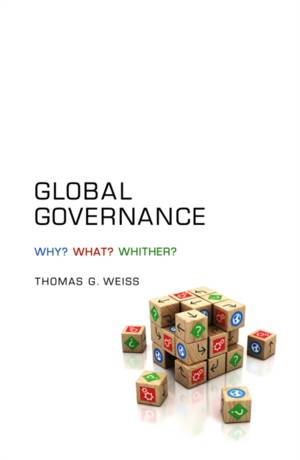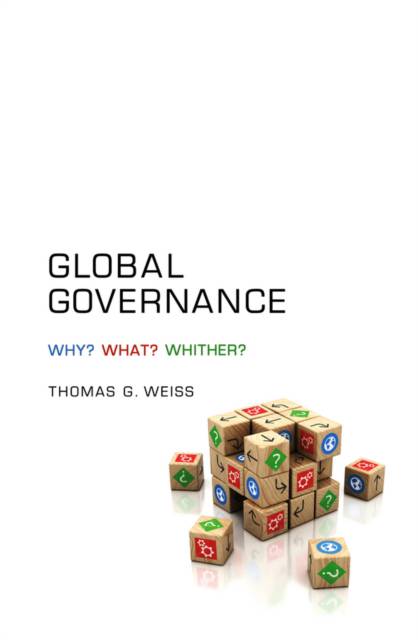
- Afhalen na 1 uur in een winkel met voorraad
- Gratis thuislevering in België vanaf € 30
- Ruim aanbod met 7 miljoen producten
- Afhalen na 1 uur in een winkel met voorraad
- Gratis thuislevering in België vanaf € 30
- Ruim aanbod met 7 miljoen producten
Zoeken
€ 43,45
+ 86 punten
Uitvoering
Omschrijving
Friends and foes of international cooperation puzzle about how to explain order, stability, and predictability in a world without a central authority. How is the world governed in the absence of a world government?
This probing yet accessible book examines "global governance" or the sum of the informal and formal values, norms, procedures, and institutions that help states, intergovernmental organizations, civil society, and transnational corporations identify, understand, and address trans-boundary problems. The chasm between the magnitude of a growing number of global threats - climate change, proliferation of weapons of mass destruction, terrorism, financial instabilities, pandemics, to name a few - and the feeble contemporary political structures for international problem-solving provide compelling reasons to read this book. Fitful, tactical, and short-term local responses exist for a growing number of threats and challenges that require sustained, strategic, and longer-run global perspectives and action. Can the framework of global governance help us to better understand the reasons behind this fundamental disconnect as well as possible ways to attenuate its worst aspects? Thomas G. Weiss replies with a guardedly sanguine "yes".
This probing yet accessible book examines "global governance" or the sum of the informal and formal values, norms, procedures, and institutions that help states, intergovernmental organizations, civil society, and transnational corporations identify, understand, and address trans-boundary problems. The chasm between the magnitude of a growing number of global threats - climate change, proliferation of weapons of mass destruction, terrorism, financial instabilities, pandemics, to name a few - and the feeble contemporary political structures for international problem-solving provide compelling reasons to read this book. Fitful, tactical, and short-term local responses exist for a growing number of threats and challenges that require sustained, strategic, and longer-run global perspectives and action. Can the framework of global governance help us to better understand the reasons behind this fundamental disconnect as well as possible ways to attenuate its worst aspects? Thomas G. Weiss replies with a guardedly sanguine "yes".
Specificaties
Betrokkenen
- Auteur(s):
- Uitgeverij:
Inhoud
- Aantal bladzijden:
- 180
- Taal:
- Engels
Eigenschappen
- Productcode (EAN):
- 9780745660462
- Verschijningsdatum:
- 10/07/2013
- Uitvoering:
- Paperback
- Formaat:
- Trade paperback (VS)
- Afmetingen:
- 150 mm x 229 mm
- Gewicht:
- 385 g

Alleen bij Standaard Boekhandel
+ 86 punten op je klantenkaart van Standaard Boekhandel
Beoordelingen
We publiceren alleen reviews die voldoen aan de voorwaarden voor reviews. Bekijk onze voorwaarden voor reviews.











